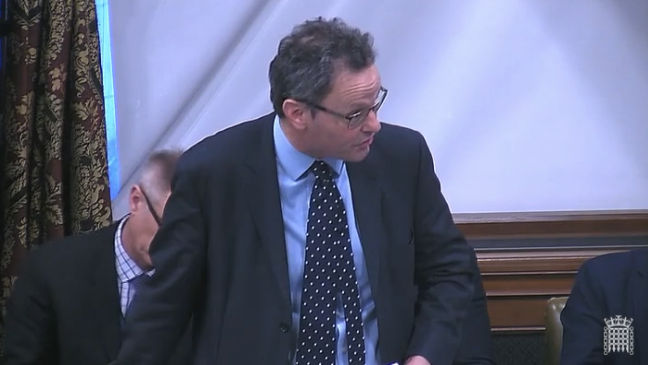Peter Aldous outlines measures needed in the Fisheries Bill to revitalise the East Anglian fishing industry, boost economic regeneration of coastal towns and ensure we fish sustainably, in particlar we need to tighten loopholes so that unacceptable practices, such as electro-pulse fishing, are not permitted. In the forthcoming EU negotiations, Peter highlights the need to change the way fishing opportunities are allocated between countries by moving to a geographical-area means of allocation.

Peter Aldous (Waveney) (Con)
It is a pleasure to serve under your chairmanship, Sir George. I congratulate my hon. Friend the Member for South East Cornwall (Mrs Murray) on securing the debate.
Over the next few months, the future of fishing in the UK will be the focus of much attention in Westminster, in the media and, most importantly, in those coastal communities that all here represent. We have a great opportunity to revitalise the industry, so that it can play a full role in the economy of towns such as Lowestoft, where in recent decades its importance has greatly diminished. Time is short, so I will make some brief comments, first on the Fisheries Bill, then on the upcoming trade negotiations and finally on how we should set about rebuilding the industry post Brexit.
The Fisheries Bill provides the framework within which the industry will be rebuilt. Generally, its provisions should enable us to do that, although consideration should be given to amendments to address the following issues. First, we should ensure a fairer distribution of fishing opportunities in favour of those inshore boats, the under-10-metre vessels that make up the majority of the East Anglian fleet. Secondly, full consideration should be given to how best to strengthen the economic link, so as to ensure that coastal communities have every opportunity to benefit from increased landings. Thirdly, the ability to fish sustainably should be ingrained in the Bill, and there must be no loopholes whereby unacceptable practices, such as electro-pulse fishing, can continue.
As the Government commence negotiations on our future trading relationship with the EU, I urge them to bear in mind at all times the importance of fishing in regenerating coastal communities and the role it can play in levelling out the economy right across and around the UK. The Renaissance of East Anglian Fisheries report, launched on 17 October 2019 in the Minister’s presence, highlights the opportunity to generate an additional £32 million per annum at the quayside in the southern North sea alone. That can only be achieved by changing the way in which fishing opportunities are allocated between countries, by moving to a geographical-area means of allocation—zonal attachment—from the relative stability rule of the common fisheries policy. It is important that, throughout negotiations, the Government adhere to that principle.
In the coming months, the Government must be proactive not on two fronts—the Fisheries Bill and trade negotiations—but three, because they need to put in place the management systems and infrastructure needed to rebuild the UK fishing industry. The REAF report sets out how we can do that in East Anglia. I am grateful to the Minister for his support for the project, but we need to implement the report’s recommendations. I will briefly outline how we should do this.
First, I would be grateful if the Minister asked his officials at the Department for Environment, Food and Rural Affairs and the Marine Management Organisation to engage proactively with East Suffolk Council, which is supporting the project, to ensure that it moves forward quickly to the implementation stage. Secondly, the Minister has previously advised that the Government will carry out an hours-at-sea pilot. Our request is that this should take place in East Anglia. Thirdly, there is a need not only in East Anglia but all around the UK to invest in infrastructure. The fleet, our ports and our processing facilities are in urgent need of upgrading, and I urge the Minister to ensure that there is provision for that in the 11 March Budget. If the right signals are sent out, they can act as a catalyst for significant private investment. We have a once-in-a-lifetime opportunity, and we must not squander it.
